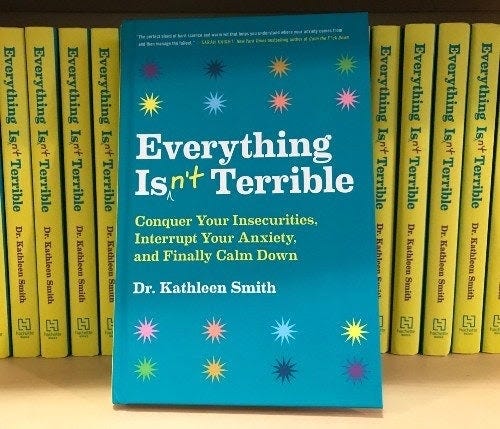Stepping Back, Stepping Up, and Stepping Out
Three moves that can take some pressure off an anxious relationship.
Last week for paid subscribers, I posted my first downloadable worksheet for observing (and interrupting) relationship patterns. I’m planning on creating more of these resources in upcoming newsletters for folks who are interested. I’ll also be posting my First Friday Q&A this Friday, so email me your questions by Thursday at kathleensmithwrites@gmail.com. Thanks to everyone for your continued support! - K
We direct a significant chunk of our energy in two directions:
Trying to be what others want us to be.
Trying to make others into what we want them to be.
So much that we forget that there are different flavors of relating to people. Flavors that respect others’ individuality and make room for our own.
There are a few flavors, or a few steps, that create the opportunity for more flexibility and freedom in an anxious relationship.
Stepping back to let people be more responsible for themselves.
Stepping up by staying in thoughtful contact with people.
Stepping out by pursuing your own interests, challenges, and beliefs.
Don’t mistake this for a formula, because it’s not a “Three Easy Steps!” approach. It is an attempt to describe how people walk the balance between being a self and being in relationships.
Often people mistake stepping back for throwing their hands up and saying, “I’m done! You handle it!” This is often anxious distancing disguised as a mature move.
The tricky part is the ability to stay in contact with people as they navigate life’s challenges. Sure, it’s always an option to abandon that dysfunctional committee or that stagnating sibling relationship, or bolt for the bathroom when your mother tries to fix her iPhone settings. But the capacity to hang in there while people fumble towards their own capabilities? That’s something that’s also worth nurturing.
Finally, working on one’s own goals and interests can take the pressure off of a relationship to manage your distress. I’m not saying that if you take up kite surfing, your teenager will stop throwing his pants on the floor. It’s not a magic trick. But sometimes individual pursuits can be a missing element in an intense relationship.
Need some examples?
Stepping back could look like:
Giving people opportunities to show you they’re capable.
Getting curious about how people have their own ways of doing things.
Learning to manage your own anxiety when people function differently.
Getting clearer with yourself about what is and isn’t your responsibility.
Not focusing on “fixing” or diagnosing others.
Stepping up could look like:
Increasing the quantity and quality of contact with important people.
Sharing your thinking, even if others disagree.
Giving others opportunity to share their own thinking.
Activating your best thinking in stressful situations.
Showing up for important events and meetings.
Stepping out could look like:
Identifying and pursuing goals.
Clarifying and refining your beliefs and principles.
Learning to manage your own anxiety more effectively.
Having goals for yourself without needing others to have them.
Working on yourself in your family of origin rather than anxiously focusing on your partner or kids.
I hope that these ideas can help you evaluate your own functioning. Where do you see opportunities for these moves in tense relationships, where there’s pressure to be a certain way? Or where you’ve been trying to fix others?
What I love about all three of these positions that they require no buy-in from others. Others may never change, but a person who is focused on their maturity is likely to give the relationship a chance of being different—something freer, more flexible, and more respectful toward the other. If nothing else, you give yourself a chance to direct your energy where it counts: towards being the person you’d like to be, in life and in your relationships.
News from Kathleen
Want a signed, personalized copy of my next book, TRUE TO YOU? You can preorder it from my neighborhood bookstore, East City Bookshop. I’ll also have some bonus materials available for newsletter subscribers who preorder. More on that soon!
Want to read more of my writing? Get my book, Everything Isn't Terrible, from Amazon, Barnes and Noble, or your local bookstore (best option).
Want a free anxiety journal with the book? Calming Down & Growing Up: A 30 Day Anxiety Journal includes thirty daily prompts to help you reflect on and respond to your anxious behaviors. To receive a copy, just email me your receipt of Everything Isn’t Terrible.
Email me if you’re interested in Bowen theory coaching or want me to speak to your group or workplace. Follow me on Linkedin, Facebook, or Instagram.
Want to learn more about Bowen theory? Visit the Bowen Center’s website to learn more about their conferences and training programs.





Loved this. It's so easy for me to focus all my efforts on the other. It's like I can't handle the thought that I'm responsible for my own feelings. Thanks for your work.
Do you think that we tend to default towards a desire to change others rather than to change ourselves? If so, why do we do this? Trying to change ourselves is always more effective than trying to change others.